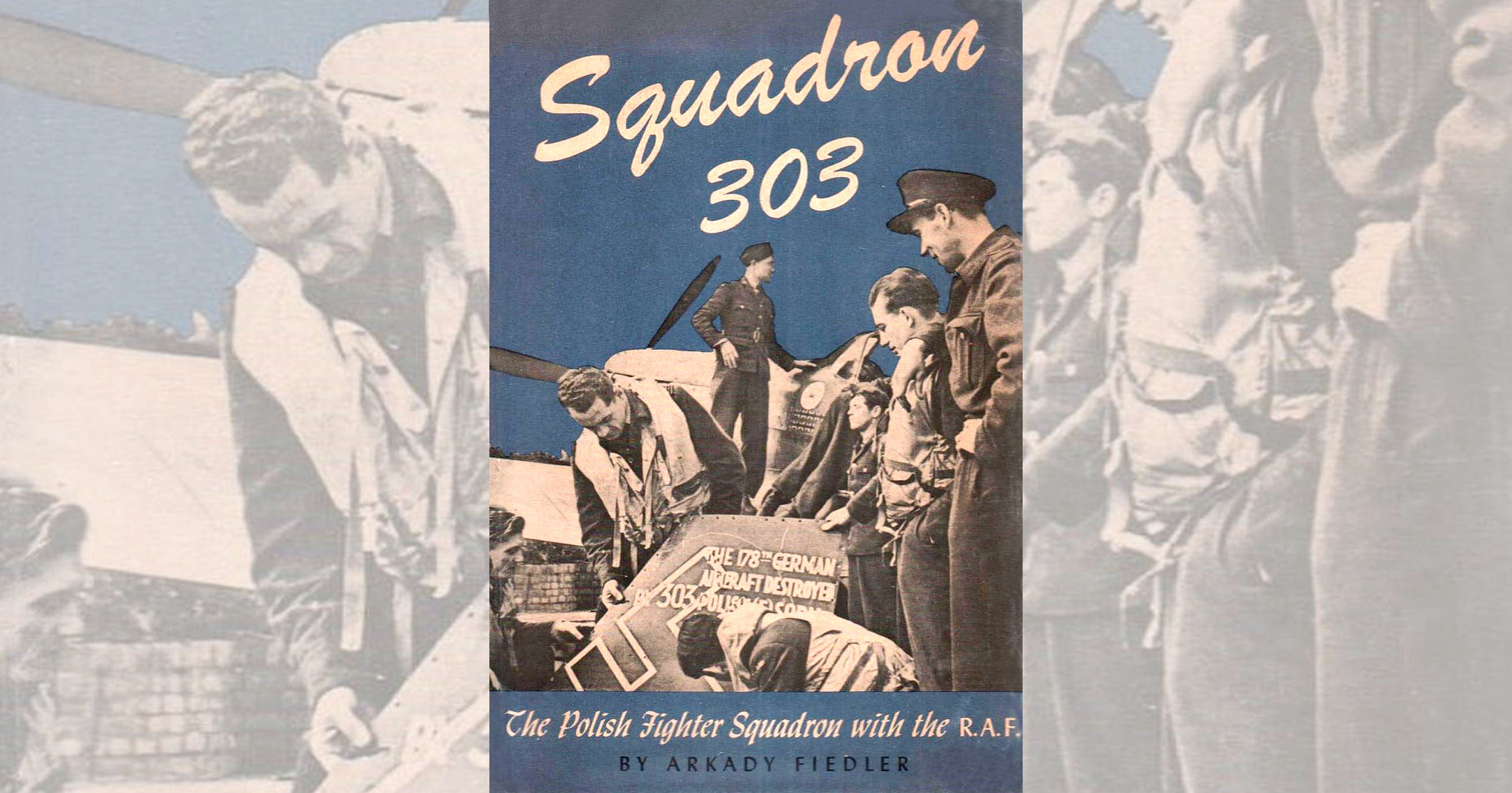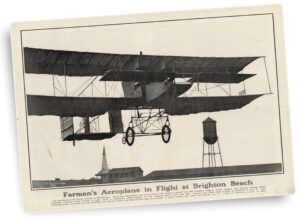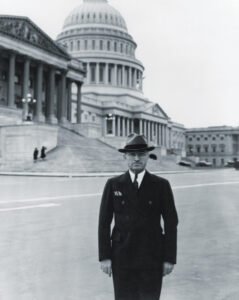Squadron 303: The Polish Fighter Squadron with the R.A.F. by Arkady Fiedler, 1943.
Arkady Fiedler, a Polish-born writer of popular travelogues, reached his zenith as a wordsmith when he chronicled the impressive early exploits of free Polish fighter pilots flying with the Royal Air Force in the historic air battle to save Britain in the summer of 1940. His poignant account focused on No. 303 Squadron, also known as the Kosciuszko Squadron, which distinguished itself from the day it entered combat in the final climatic weeks of the clash. It was a time, as Fiedler’s eloquently crafted book makes clear, in which human destiny hung in the balance.
The squadron was named after 18th-century Polish war hero Tadeusz Kosciuszko, whose Lafayette-like example during the Revolutionary War had inspired American volunteers to form a flying unit in 1919 to help defend Poland against the Soviet Union. Twenty-one years later, the Poles proudly fighting under this banner not only helped fend off Britain’s tormenters, but sought to eventually liberate their besieged homeland from the latest in a long string of foreign occupiers. Fiedler vividly describes these Polish fliers’ aerial victories, which resulted in one of the top squadron tallies by the end of the Battle of Britain.
The Polish airmen were initially greeted with skepticism by their British hosts. But once the shooting started and the expatriates were given the opportunity to avenge the loss of their country, it soon became clear that they were extraordinarily effective warriors in their Hawker Hurricanes.
Security concerns prompted Fiedler to use pseudonyms in his wartime book rather than the pilots’ actual names. With the publication of a new translation on the 70th anniversary of the Battle of Britain, the names were incorporated. Also, when Fiedler wrote this highly inspirational story about the forces of good triumphing over the forces of evil, he had no way of knowing that the pilots he so revered would sadly have their dream of a free Poland deferred until the collapse of the Iron Curtain a generation later.





